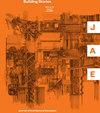Toward Reparative Design Pedagogies
IF 0.2
4区 艺术学
0 ARCHITECTURE
引用次数: 0
Abstract
This essay explores reparative design pedagogies to advance intersecting racial justice and climate goals through the case study of the “CoDesign Field Lab: Black Belt Study for the Green New Deal.” Through engaged community design processes with Afro-descendant communities in the Black Belt South, the design action research seminar sought to reimagine and future the region as fount and staging ground for a reparation-based Green New Deal. We examine the course design and setup—including relational infrastructures to deepen collaboration between regional youth and community elders and graduate students of urban planning, architecture, landscape architecture, and design studies—and the resulting future histories of reparative infrastructures for the Black Belt. The concluding discussion considers case implications for design pedagogies, including the importance of shifting away from knowledge bases and design-cultures predicated on whiteness and white supremacy, and supporting community-based processes of reparative design and reparations centering those who have directly suffered harm and their descendant communities.走向可修复的设计教育学
本文通过“共同设计领域实验室:绿色新政的黑带研究”的案例研究,探索了促进交叉种族正义和气候目标的修复性设计教学法,设计行动研究研讨会试图将该地区重新想象为以赔偿为基础的绿色新政的源泉和舞台。我们研究了课程设计和设置,包括加深地区青年和社区长者以及城市规划、建筑、景观建筑和设计研究生之间合作的关系基础设施,以及由此产生的黑带修复性基础设施的未来历史。结论性讨论考虑了设计教学法的案例影响,包括从以白人和白人至上为基础的知识库和设计文化中转移出来的重要性,以及支持以直接遭受伤害的人及其后代社区为中心的社区修复性设计和赔偿过程的重要性。
本文章由计算机程序翻译,如有差异,请以英文原文为准。
求助全文
约1分钟内获得全文
求助全文
来源期刊

Journal of Architectural Education
ARCHITECTURE-
CiteScore
0.60
自引率
0.00%
发文量
18
期刊介绍:
The Journal of Architectural Education (JAE) has been published since 1947 for the purpose of enhancing architectural scholarship in design, history, urbanism, cultural studies, technology, theory, and practice. Published on behalf of the Association of Collegiate Schools of Architecture, JAE appears twice annually in October and March, with the October issue being the first of a new volume.
 求助内容:
求助内容: 应助结果提醒方式:
应助结果提醒方式:


